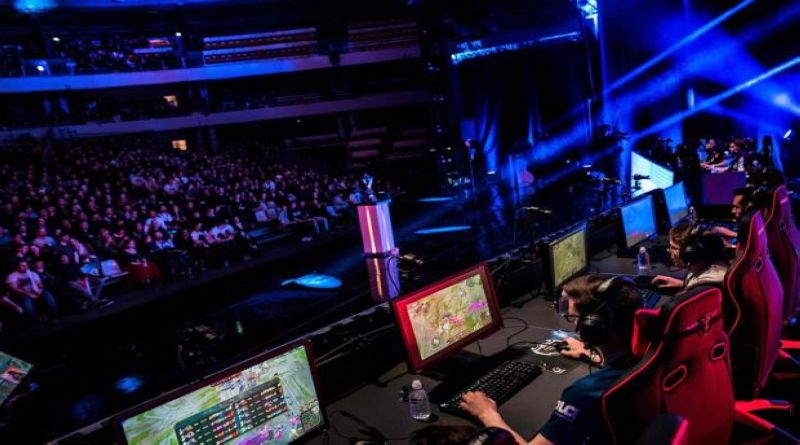Alibaba backs decision to add videogames to ‘Asia Olympics’
BEIJING: Online retail giant Alibaba batted down criticism over a decision to add e-sports to the lineup of the 2022 Asia Games in China, responding to scepticism about an event it will play a major role in promoting.
The decision by the Olympic Council of Asia (OCA) April 17 to debut the new category during the games in the eastern city of Hangzhou raised eyebrows, with many commenters wondering whether the category was an appropriate addition to the competition.
E-sports, or videogames, are enormously popular throughout Asia, where fans fill huge stadiums to watch top players fight on the virtual battlefields of games likeStarcraft and League of Legends.
But many have questioned whether the events are appropriate for inclusion in a competition that has focused on more traditional sports like track and field.
Others have raised concerns about the potentially addictive qualities of the games, which have reportedly led students to drop out of school or even play themselves to death.
But Alisports – Alibaba’s sport division that will be partnering with the OCA to promote the event – told AFP that e-sports were not simply videogames.
Rather, “it is a positive and healthy sports programme.”
The company hosted the World Electronic Sports Games in 2016, an e-sports championship with over 60,000 participants from nearly 200 countries and regions, according to the event’s website.
A finalist at the competition won support from his parents by studying well and playing well, Alisports said, adding that “it is not e-sports itself that affected (some students’) coursework”.
The announcement has also raised concerns from industry figures, such as a top executive of PandaTV, a Chinese livestreaming site that focuses on e-sports, who questioned how the OCA would select the games – all of which are made by private companies – for inclusion in the event.
No decision has been made, Alisports said, but added that they would “promote the most popular and mature games best for competition” and that the baseline is “going against violence and bloodshed”.
China’s General Administration of Sports included e-sports as an official sporting event in 2003.
China alone has around 170 million videogamers, who contribute to a vast industry with a market value of 40bil yuan (RM25.55bil), according to China National Radio.
A live stream of famous Chinese singer Jay Chou playing League of Legendsattracted 17 million viewers in 2015.
Last year, China’s ministry of education declared E-sports an official major for vocational colleges.
A school in Inner Mongolia took the lead in offering the courses, recruiting some 50 students last year, according to its website.
Players hailed the curriculum change, saying it would put an end to frictions between young gaming addicts and their ambitious Chinese parents.
But some people remain sceptical.
”At least ordinary sports are good for your health even if young people can’t play them professionally,” wrote one confounded commenter on China’s Weibo micro-blog.
”But what can e-sports bring people?” — AFP









